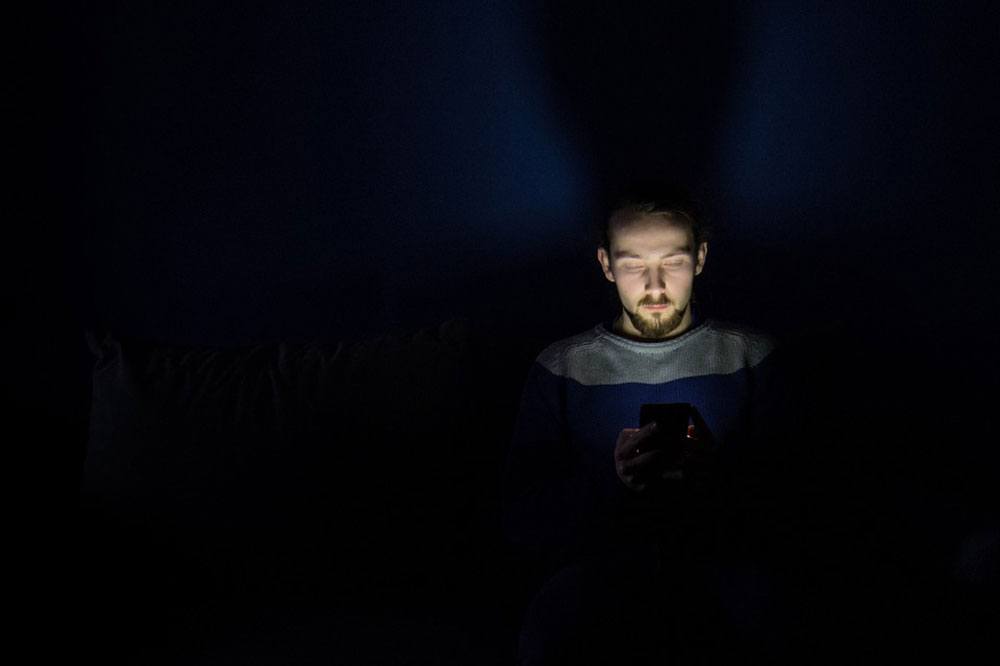You toss. You turn. You lie awake in the dark counting sheep. Feeling exhausted but unable to fall asleep or stay asleep. Frustration multiplies as you consider all of the things you need to do tomorrow and how tired you’ll be if you can’t get to sleep soon. You look at the clock for the hundredth time. Exhaustion leads to anxiety and you find yourself spinning in a rabbit hole of sleeplessness. Then, once you do finally fall asleep, your alarm goes off in an hour or two, forcing you to start your day with a tired body and brain.
The single most common sleep complaint, insomnia was considered for long time as only a symptom of other healthy conditions. More recently, however, insomnia has been categorized as a primary disorder as well. It is not simply defined by how quickly you fall asleep or how many hours you sleep, but by how restorative your sleep is.
Insomnia occurs in around 1 in 3 people at some time throughout their lives! This includes millions of Americans. That’s a lot of people awake at night who should be sleeping! Short term insomnia is categorized as lasting for under three months. Adults who experience symptoms of insomnia that occur at least three times each week for three months or more are considered to have chronic insomnia.
One study estimated that symptoms of insomnia in American adults account for up to eight lost days of work performance per year for each person with the condition. This adds up to more than $60 billion worth of lost work in the US alone. Just from losing sleep! Clearly insomnia makes a huge impact on people’s lives every day and is a costly problem overall.
Signs and Symptoms of Insomnia
The most obvious symptom of insomnia is the inability to sleep well at night. But many other insomnia symptoms are results that mean a variety of interruptions to normal lifestyle functioning. These symptoms and signs of insomnia can include mood changes, brain fogginess, constant fatigue, inability to function at work, and other serious lifestyle problems. People who don’t get enough sleep have trouble functioning in all areas of their lives.
The reasons for insomnia are varied, but the condition is often related to psychological struggles such as stress and anxiety. Certain health issues and illnesses may result in insomnia. Symptoms of insomnia can be a side effect of certain medications or medical treatments for some people. In addition, poor sleep habits may also be to blame for sleeplessness.
So what are the symptoms of insomnia? Here’s a list:
- Difficulty getting to sleep at night
- Awakening many times during the night
- Waking up too early in the morning and unable to return to sleep
- Feeling unrested after a night of sleep
- Difficulty with attention span, focus and memory
- Daytime sleepiness or fatigue
- Increased clumsiness, accidents or errors
- Depression, anxiety, irritability, or other mood changes
- Poor performance at work or school
- Relationship problems
- Hyperactivity and aggression (especially in children)
- Requiring substances such as alcohol or sleeping pills to fall asleep
- Sleeping in later in the morning to make up for lost sleep causes more difficulty in sleeping at night
- Worry or tension related to going to bed
Insomnia in Men
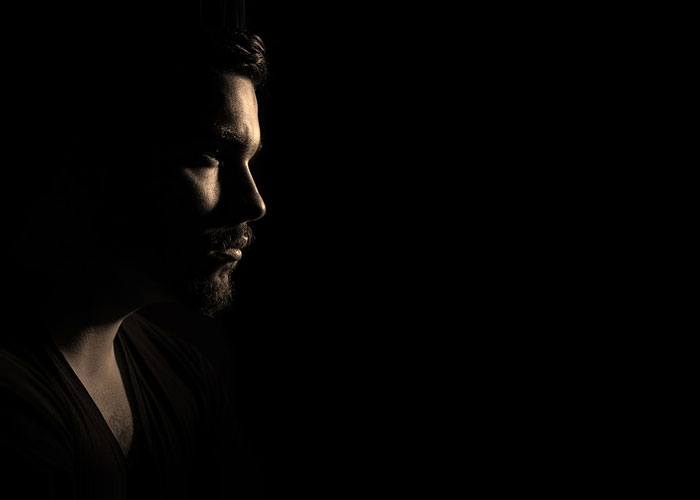
High stress levels are one of the most common reason for lost sleep in men. Day to day stress at the office or with the family can lead to long periods of worry—and lost sleep. During chronic stress, cortisol and adrenaline levels are elevated, causing a boost of energy in the body and making the mind race. Over time, these boosts of energy and raised blood pressure increase the risk for many serious illnesses and often cause insomnia.
Insomnia symptoms in males may also come from poor eating habits and gaining too much weight. Not only eating the “right” foods, but also ingesting them at the right time. Heavy meals eaten just before bedtime are bad for digestion and keep you from sleeping well. In fact, many foods that are considered “manly” such as red meats, actually make it more difficult for you to sleep at night! Men are also twice as likely to get sleep apnea as women, and this is often caused by being overweight. Sleep apnea is a serious health condition that directly causes insomnia because of interrupted breathing.
Present in both men and women, low activity levels (i.e. being a couch potato) can be the culprit for inducing insomnia. If you’re not active enough to burn energy off during the day, you’re going to have trouble sleeping at night. This also goes along with the previous concern of insomnia in men, which is gaining weight that can lead to sleep apnea.
Insomnia in Women
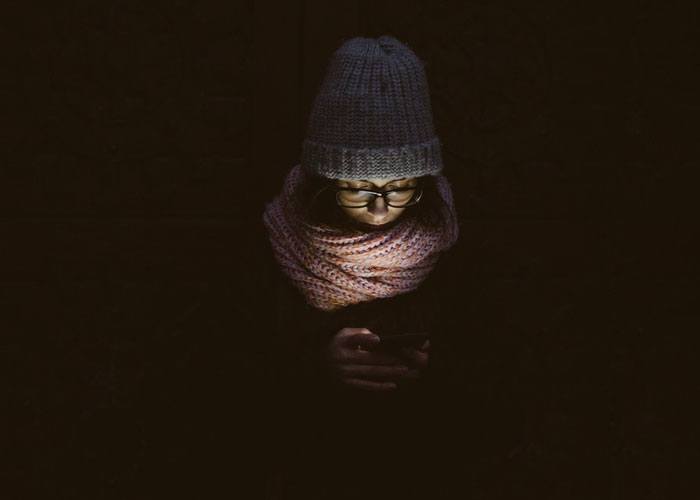
Women are actually more likely than men to struggle with insomnia. Studies have shown that women’s brains are actually more active than men’s, which could be one of the reasons that they struggle to fall asleep and stay asleep at night. While some of the triggers, causes, and insomnia symptoms in females are the same as those in males, some are different. Sex hormones (such as estrogen and progesterone) and gender can make a big difference in a person’s ability to sleep at night.
Women who are pregnant may have more difficulty falling asleep and/or staying asleep than normal. Pregnant women suffer from insomnia because of hormone shifts, needing to go to the bathroom, having leg cramps or experiencing other types of physical discomfort. Worry and anxiety are also on the top of the list of women whose lives are about to change with the entrance of a new baby.
Another time of life that can be deeply affected by insomnia and sleep problems is perimenopause and then menopause. Hormonal changes that trigger night sweats and hot flashes may disturb sleep. Anxiety, irritability, and mood swings are all parts of menopause that can also contribute to sleeplessness. Fatigue during menopause may limit the energy to exercise, contributing to less restorative sleep at night.
Even following menopause, many women still struggle with sleep issues. This may be related to aging as well as depression, more need for medication, and social status that causes anxiety.
Some other conditions that cause secondary insomnia are more common for women, leading to more instances of non-restorative and interrupted sleep. Anxiety, depression, fibromyalgia, restless leg syndrome, and other disorders are all more prevalent in women than men and may also lead to insomnia.
Insomnia in Children

Although insomnia is much more common in adults, struggling to sleep at night may also affect children. Short term insomnia in children may be caused by circumstances that resolve themselves, such as a cold or flu, short-term medication, or some other temporary factor. Long term insomnia in children is considered to last for more than a month and occur 3 or more times per week.
When children are sleeping, they are growing and their brains are spending time developing. Kids need a lot more sleep than adults in order to grow in healthy physical stature, as well as for developing mentally and emotionally. Insomnia in children or teens should be considered very seriously and addressed right away if discovered.
Bedtime resistance may be considered to be a form of insomnia in kids, as is the need for a child to have a parent available to initiate sleep. This depends on the age of the child, but the root of the problem in these instances may be related to behavioral causes.
Some children may not be fully aware that they aren’t sleeping well at night, so they can’t necessarily tell their parents. Being aware of signs of insomnia in children is important, such as complaining of being tired, seeming distracted, or appearing to be groggy throughout the day. Children who wake up very early in the morning before it gets light outside may be struggling with insomnia. Moodiness, hyperactivity, and erratic behavior may all be signs of insomnia in children.
Insomnia in Elderly

Insomnia is much more commonly diagnosed in people who are elderly. While the average adult needs approximately 8 hours of sleep per night, this need decreases slightly in people as they become elderly. This need for less sleep, combined with an inactive lifestyle due to physical disabilities or simply slowing down with age, can result in problems with insomnia in elderly people. Depression can also be linked to elderly people with insomnia.
Chronic Insomnia
Two general types of insomnia exist: acute insomnia and chronic insomnia. The symptoms are the same for these two types, although the causes may be different. Acute insomnia may come and go, lasting from just one night at a time to a few weeks. People with acute insomnia often do not seek medical care because it typically goes away on its own.
But what is chronic insomnia? The main difference between acute (short-term) insomnia and chronic insomnia is simply time. If chronic insomnia symptoms happen three nights a week for at least a month. Some people consider some severe insomnia symptoms to be worse than others, but medically the categorization has everything to do with the amount of time a person has been experiencing sleeplessness.
Fatal Familial Insomnia
A rare genetic disease, fatal familial insomnia is an inherited disease that affects the thalamus part of the brain. Fatal familial insomnia symptoms include progressive sleeplessness, lack of appetite, weight loss, progressive dementia, and fluctuating body temperatures. Most people with fatal familial insomnia will know that it is in their family and should be aware of its effects. Currently there is no treatment or cure for fatal familial insomnia and death usually occurs within 1 to 1 ½ years of onset.
Causes of Insomnia
So what are the causes of insomnia? While there are a lot of factors that contribute to sleeplessness (and often they are intertwined) some of the main reasons that people cannot sleep at night are related to emotional problems that cause stress, unhealthy sleep habits, or physical health conditions and the medications used to treat them.
What Causes Insomnia in Adults
Some of the most common causes of insomnia may be due to lifestyle factors that keep you from sleeping well at night. This could be related to a poor sleeping environment, stressful situations at work, physical health problems, or even medications you are taking.
Lifestyle Factors
Sometimes the circumstances in our lives that affect our sleep are difficult to control. For instance, a job that requires working the night shift, or work-related travel that causes jet lag can both be contributors to insomnia. Other lifestyle choices that may affect insomnia could be as simple as not having regular sleep habits, or the use of substances that can interrupt the sleep.

Sleep Cycle. Going to bed and getting up at the same time every day is the best way to stay in a healthy sleep pattern. Even on days when you don’t have to get up for work, getting out of bed at the same time makes a difference in whether or not you’ll be able to go to sleep well later that night.
Substance Use. Many people who have trouble sleeping look for a bit of “help”. Alcohol is a sedative and can make you relax and sleep initially, but can cause disruption to sleep later in the night. Some people who are chronically sleepy lean on caffeine in order to get themselves to stay awake during the day, but this can be to the detriment of their sleep at night. Caffeine can stay in your system for eight hours, which means that you shouldn’t drink it after lunchtime if you struggle to sleep at night. Nicotine is also a stimulant that can cause insomnia.

Electronics. The brain is highly stimulated by light—especially blue light that comes from computers, smartphones, tablets, etc. Using these devices late into the evening, whether for work or for fun, can have a detrimental effect on a person’s ability to fall asleep at night.

Mental Health Conditions
Certain psychiatric and mental health conditions such as depression, as well as stress and anxiety, may be the culprit for insomnia. People who have major depressive disorders are much more likely to have severe insomnia. And the two work against each other because insomnia can also trigger depression or make it worse.
Although typically less severe than clinical depression, anxiety and depression are certainly strong contributors to insomnia. Symptoms such as tension, excessive worry, feeling overwhelmed by responsibilities, overstimulation, and obsessing over past events may cause difficulty sleeping. Some people who have anxiety get caught up in a cycle of thinking and worrying, which results in insomnia. These types of mental and psychological situations should always be treated by a healthcare professional.
Physical Health Conditions
Many illness and health conditions can result in lost sleep. This could be related to the actual symptoms of the health condition interrupting sleep. It can also be exacerbated by worry and anxiety about the health that can result in sleeplessness. In these cases, the treatment of the underlying medical condition often provides relief from the insomnia.
Sleep Disorders. Underlying sleep disorders such as sleep apnea or restless leg syndrome often contribute to difficulty sleeping. Falling asleep and staying asleep is difficult when a related condition such as breathing problems or leg movements continue to wake you up.
Chronic Pain. Back pain, fibromyalgia, or pain associated with conditions such as arthritis all have a tendency to keep people awake at night. When a person is in pain, relaxation and falling asleep can be very difficult. This can also cause a person to wake up in the night and be unable to fall back to sleep because of the pain.

Heart Problems. Almost ¾ of people who have heart failure report that they frequently have trouble sleeping. This may be related to typical causal factors such as the stress of having a chronic illness and because they are more likely to develop depression. But insomnia may also be linked because people with heart failure tend to have shortness of breath when lying down, causing them to be uncomfortable and wake up often. People with heart problems also commonly have sleep apnea, which is directly related to insomnia.

Sinus and Breathing Problems. Nasal problems, sinus conditions and allergies can all be contributing factors for insomnia. The inability to breathe well at night in addition to constant coughing and sneezing may result in sleep interruptions for those with allergies, asthma, and sinus problems.

Gastrointestinal Issues. Reflux, heartburn, and other health conditions that cause digestive pain and discomfort in the stomach or esophagus can contribute to sleep disruptions.
Medications
Certain medicines, either purchased over the counter or with a doctor’s prescription, may cause insomnia. Medications that cause sleeplessness may be for conditions such as allergies, thyroid disease, heart problems, high blood pressure, asthma, depression, and allergies. Diuretic medications may be prescribed for a variety of health problems, which cause a person to wake up in the night in order to urinate.
What Causes Insomnia in Kids
Although the idea of sleeping “like a baby” is a common one, once children get past the baby stages they may also be susceptible to developing unhealthy sleep problems. Lack of healthy diet and exercise can lead to insomnia in children as well as in adults.
Many children today have sedentary lifestyles, resulting in an inability to burn off the energy needed to rest at night. Caffeine and diets that are high in carbs and sugars can be extremely detrimental to a child or teen’s ability to sleep well at night. A well-balanced diet and plenty of exercise will help children and teens to sleep better at night.

Some children who take medications are particularly susceptible to insomnia. Drugs to treat depression and hyperactivity (ADHD) may cause sleeplessness. Anticonvulsants and corticosteroids may also trigger an inability to sleep well at night.
Just like with adults, stress can be a significant cause for insomnia in teens and children. Children often have many worries that can keep them lying awake at night without sleep. Often simple conversations about these stresses will help to alleviate concerns and promote healthier sleep, but further action may need to be taken.
Chronic Insomnia Causes
The causes of chronic insomnia are very much the same as the causes of acute insomnia. The major difference is that chronic insomnia lasts for a longer period of time and often does not resolve itself on its own. People who have chronic and severe insomnia should be seen by a medical professional to assess the concerns and find a treatment option for insomnia.
Fatal Familial Insomnia Causes
While a few sporadic cases of fatal familial insomnia are recorded, this rare genetic disease is almost always caused by an abnormally shaped protein in the thalamus part of the brain. This part of the brain that regulates messages to the body particularly affects sleep and wake cycles, which is the cause of this form of insomnia. This very rare brain disease runs in the family and will ultimately results in premature death.
Insomnia Treatment Options
While acute (short-term) insomnia is likely to go away on its own or with minor lifestyle adjustments, chronic insomnia may require the intervention of doctor or other medical professional. Treatment for insomnia typically begins with the most basic forms of lifestyle modification.
If this is not effective, a doctor may offer other insomnia treatment options. Sleep problems are nothing to take lightly. So whether you need treatment for severe insomnia or a mild case, contact a medical professional to be sure you get the best possible care.

Really, the best treatment option for insomnia will be different for every person, depending the exact cause. Other factors to consider in seeking treatment include medications, physical ailments, and mental struggles such as stress and anxiety.
How to Treat Insomnia
In order to figure out treatment for insomnia, you first need to figure out what exactly might be causing it. Here are some questions that may point you in the right direction toward the cause, which can then help you with the answer.
- Is your mind constantly spinning when you try to go to sleep?
- Do you have a lot of stress or anxiety that is bothering you?
- Are you taking medications that could be affecting your ability to sleep?
- Have you had trauma in your life that could be causing you to lose sleep?
- Do you have physical health problems that may be causing you to have insomnia?
- Do you have healthy sleep habits? (Going to bed and waking up at the same time every day, etc.)
- Do you feel emotionally drained, sad, or depressed?
- Is the environment in which you sleep comfortable and conducive for rest? (Temperature, lighting, sounds, etc.)
Once you’ve discovered what some of the reasons behind your insomnia might be, you are more equipped to determine how to change it. Your approach may be multi-faceted and require some changes you can do on your own, or in conjunction with a doctor.
Natural Treatment for Insomnia
Many people want to know how to treat insomnia naturally because they aren’t interested in using medications if they can be avoided. The first step is to make sure that you are practicing healthy sleep hygiene.
Regular Bedtimes. Go to bed at the same time each night and get up at the same time each morning, even if you don’t have to go to work. Get out of bed as soon as you wake up as lying around in bed can be detrimental.
Limit Stimulants. Caffeine, nicotine, and even alcohol can act as stimulants that keep you awake at night. The effects of caffeine can last up to eight hours so it’s best not to drink any caffeine after lunch. If you smoke and aren’t able to quit completely, limit your access to cigarettes to at least an hour before bedtime. While alcohol may make you sleepy at the beginning of the night, it can disrupt your sleep and cause you to wake up in the middle of the night or too early in the morning.
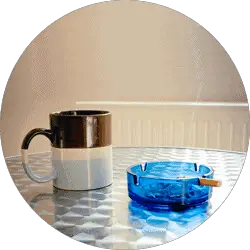
Set the Temperature. Studies have shown that optimal temperature for sleeping without getting too cold or hot should be set between 60 and 68 degrees F. If it’s too hot, you get sweaty and restless and it’s difficult to sleep. Too cold? Fighting to keep the covers on and shivering keeps you awake.
Pay Attention to Lighting. If possible, install dimmer switches in your home so that you can begin turning down the ambient lights in your house about an hour before bedtime. When your body experiences light during the day and then dark in the evening, the dark triggers the production of melatonin. And that melatonin helps you to sleep soundly. If you are constantly surrounded by light, your body will not appropriately produce melatonin and you won’t be able to sleep.
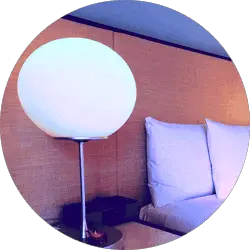
Limit Noise. Snoring spouse? Loud neighbors? Live near a highway? Consider the way that noises may be keeping you from falling asleep or waking you up in the night. Earplugs might help you to drown out noise. Some people find that soft, white noise is useful in covering up other sounds. Running a white noise machine or even a fan can help—although a fan can make it too cold so be careful of the temperature factor.
Control Electronic Devices. Limit the use of electronic devices and screens, particularly within two hours of bedtime. The blue light from televisions, laptops, phones, and tablets cause vivid stimulation in the brain that limits the ability to sleep. Stop using electronics at least an hour or two before bedtime.

Relaxation Techniques. Some people find that mindfulness, meditation, and yoga are all useful ways to rein in the mind and get the body to sleep better at night. These techniques can be learned by taking a class or asking a holistic healer about practices that help with insomnia.
Chronic Insomnia Treatment
While short-term insomnia can often be treated with some simple behavioral modifications, chronic or severe insomnia may need more attention from a medical professional or doctor. If you are struggling with chronic insomnia, ask your doctor for help. They may offer behavioral therapy, sleep hygiene training, or possibly medication.
Cognitive Behavioral Therapy
Considered the best treatment for chronic insomnia, cognitive behavioral therapy helps to talk about what’s making you anxious or unable to sleep as well as addressing habits and behaviors that might be disrupting your ability to go to sleep or stay asleep. Cognitive behavioral therapy offers
Medication
Prescription medication may be used as a treatment for chronic insomnia, but should be considered as a last resort and should only be used for short periods of time to avoid addiction. The prescription medications used typically fall into the category of ‘hypnotics’ (such as Ambien or Lunesta). The side effects of sleep medications can sometimes be worse than the insomnia itself and send your body into a further tailspin of problems. Medications for insomnia often work better for short periods of time when used in conjunction with cognitive behavioral therapy.
Fatal Familial Insomnia Treatment
Because it is a neurological condition, currently there is no treatment for fatal familial insomnia that can slow the disease or cure it. Most people who begins showing symptoms of fatal familial insomnia will only live for another 12-18 months after symptoms appear.
Insomnia Treatment Medication
While most people try to avoid the use of drugs to treat insomnia, sometimes it is the only option. The most important consideration when taking medication for insomnia is to be sure that you tell your doctor if you are taking other prescription or over the counter drugs as they could interfere with one another.

If you do have insomnia and your doctor chooses to treat you with medication in the short-term, you may be prescribed:
- Lunesta (eszopiclone)
- Rozerem (ramelteon)
- Sonata (zaleplon)
- Ambien, Edular, ZolpiMist (zolpidem)
- Trazodone (an antidepressant)
Drugs that can be found over the counter that induce sleep include:
- Nytol, Sominex, Benadryl (diphenhydramine HCl)
- Unisom, Nighttime (doxylamine succinate)
Drug tolerance, dependence, withdrawal, negative drug interactions, and rebound insomnia can all be problems that make insomnia worse rather than better when using medication. The risk of taking medication for insomnia over the long term is very high, so be sure to talk to your doctor very seriously about your other options before landing on this one.
Insomnia Treatment Guidelines
There are official guidelines in the medical community for the treatment of insomnia. We’ve taken them down to a readable version for you, without all the medical jargon.
Wrapping It Up
Getting a good night’s sleep can be taken for granted—until you can’t seem to get sleep. Insomnia affects millions of people every day, but there are certainly things that can be done about it! If you find yourself stressed, anxious, or unable to sleep, then take a step toward getting your life and health back in order. Talk with your doctor about the cause and the best possible treatment for insomnia to help you come to terms with your struggle and find a workable solution.
